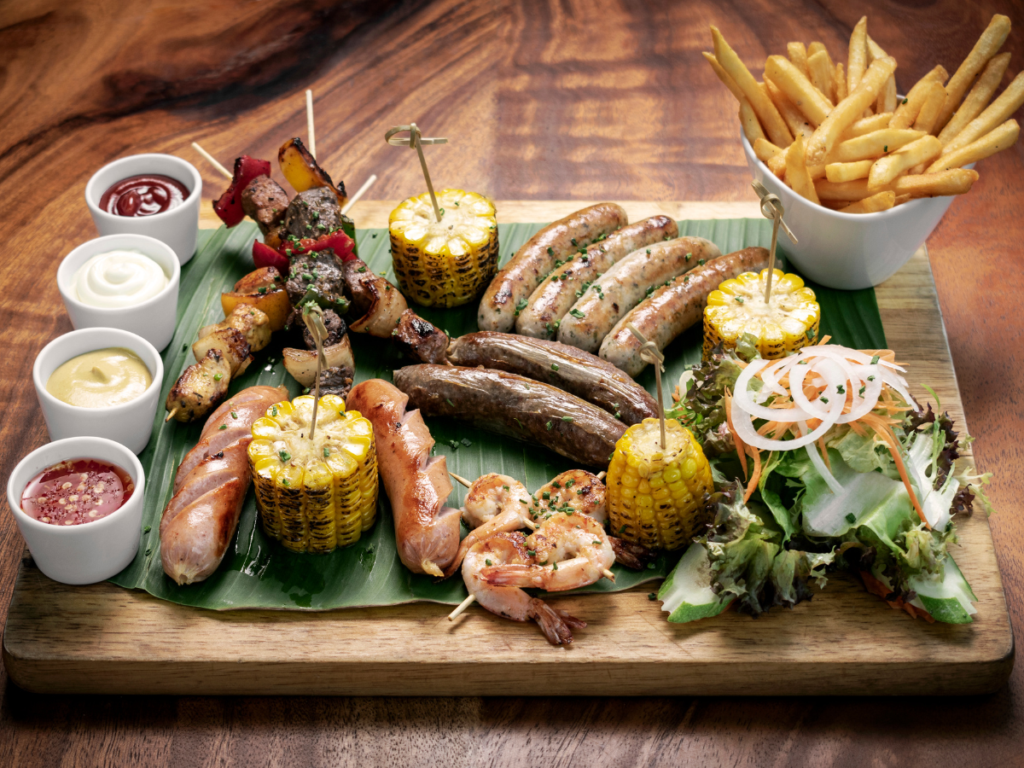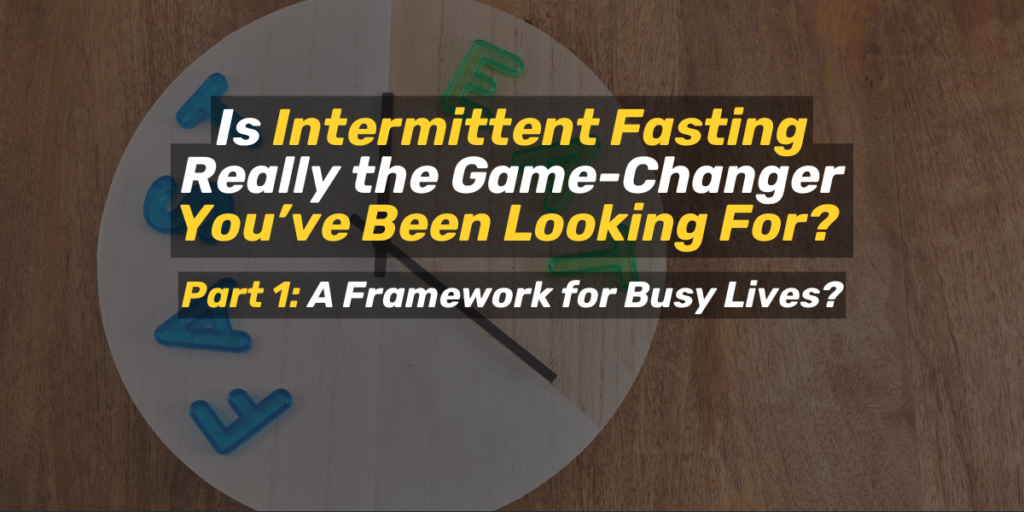I used to be a heavy meat eater. Chicken, turkey, steak—you name it, it was on my plate every day. I used to swear by a steak, nuts and avocado for breakfast.
Protein from meat was king, I had the fixed mindset that if you wanted to get strong, stay lean, and be healthy, meat was a non-negotiable. Or at least, that’s what I thought.
But over time, I started questioning it. Not because some documentary scared me into it, although Game Changers and Cowspiracy planted the seed, but I didn’t all of a sudden go full veggie overnight. I just took a step back, did the research, and paid attention to what was happening to my body and my health.
And what I found? Too much meat—especially the way it’s produced today—isn’t the nutritional powerhouse we’ve been led to believe it is. In fact, it’s a ticking time bomb for some of the biggest health issues out there: heart disease, cancer, Alzheimer’s, dementia, stroke, diabetes, obesity, and all cause mortality. {1,2,3,4,5,6,7,8}
So, I made a shift. I didn’t cut it out completely—I still eat fish maybe 1-2 days a week, and I might have red meat once every other month if I’m out. But I moved towards a diet higher in whole grains, vegetables, beans, lentils, split peas, chickpeas, fruits, and nuts.
Not because someone told me to. Because it made sense for my health, my future, and my family.
What If More Meat Isn’t the Answer?
We’ve all been told that meat = health, strength, and vitality. It’s been drilled into us that protein needs to come from meat, or we’ll waste away.
But here’s the thing: too much meat—especially the processed, hormone-pumped, antibiotic-laden stuff that floods supermarkets—is linked to some of the worst health problems out there.
Let’s break it down.
1. Heart Disease & Stroke – The Silent Killers
For decades, heart disease has been the leading cause of death worldwide. And what’s one of the biggest culprits? Saturated fat and cholesterol from animal products.
I’m not saying a grass-fed steak here and there is going to kill you. But when meat is your main source of protein day in, day out, and you’re stacking that with processed foods, sugar, and lack of movement—it’s a recipe for clogged arteries, high blood pressure, and strokes waiting to happen.
And it doesn’t happen overnight. It builds up over years, slowly, until one day, it’s too late.
2. Cancer – The Connection No One Talks About
Studies keep piling up showing a strong link between red and processed meats (bacon, sausages, deli meats) and cancer—especially colon and rectal cancers.
The World Health Organisation (WHO) has classified processed meats as a Group 1 carcinogen—the same category as smoking.
Now, I don’t know about you, but when I hear “cancer-causing,” I tend to pay attention.
My mum has had cancer and my dad is having a right scrap with stage 4 prostate cancer as we speak. I know first hand the terror cancer causes and any food that studies are showing contributes, well it can fuck right off out of my diet.
3. Alzheimer’s & Dementia – The Brain Fog You Don’t See Coming
Most people don’t think about brain health until it’s too late.
But research is showing that diets high in saturated fats from meat can increase the risk of Alzheimer’s and cognitive decline.
Think about it—what’s the point of being strong and fit in your body if the food you’re eating is a factor in your mind is slipping away?
4. Type 2 Diabetes – It’s Not Just Sugar That’s the Problem
We all know sugar is a major driver of diabetes, but here’s the kicker: excess animal fat also plays a role.
Too much saturated fat from meat makes your cells resistant to insulin, meaning your blood sugar stays higher for longer, increasing your risk of insulin resistance and diabetes.
So, yeah mate—cutting back on sugar is priority #1, but if you’re still smashing through plates of meat every day, you’re not off the hook.
5. Obesity – The Hidden Impact of Excess Meat Consumption
Contrary to popular belief in the ‘if it fits your macros’ camp—being overweight isn’t just about eating too much and moving too little. It’s about what you’re eating, and how your body processes it.
High-meat diets, especially the ones loaded with processed meats, stack your plate with excess calories, saturated fats, and little to no fibre—the perfect storm for weight gain. And when you combine that with ultra-processed foods, sugar, a cheeky few in the pub on a Friday, and lack of movement, your metabolism takes a hit, making it even harder to burn fat.
But it’s not just about how you look mate. being overweight is a direct driver of serious health issues—diabetes, heart disease, and even certain cancers. When your body is wearing more fat than it’s designed to, your joints, your organs, your energy levels—all of it suffers mate, and
And before you know it, that extra few pounds turns into a full-blown uphill battle against your health.
6. All-Cause Mortality – The Bigger Picture
Here’s a brutal truth mate: the more processed and red meat you consume, the higher your risk of an leaving us early.
Multiple studies show that diets high in red and processed meats increase all-cause mortality—meaning, they up your chances of dying from ANY major disease. Heart disease, cancer, diabetes, stroke, neurodegenerative disorders—it all links back to diet.
I’m not about fear-mongering—it’s about awareness. If you knew that swapping out a portion of meat for plant-based proteins, whole foods, and fibre-rich meals could extend your life, why wouldn’t you?
Again, I’m not saying never eat meat mate. But when the research is pointing straight at the dangers of excessive meat consumption, ignoring it won’t do you any favours.
If longevity, energy, and quality of life are important to you, it’s worth making some changes now—before you don’t have the choice anymore.
Why I Made the Shift (And Why You Might Want to Consider It Too)
This wasn’t some overnight epiphany. It was a gradual shift based on facts, experience, and what felt right for me.
The final push? Becoming a dad.
When my little lad was born in February 2024, something clicked. I started looking at my health not just for me, but for him. I don’t just want to be around—I want to be healthy, strong, and full of energy for years to come. I want to be a rock solid role model for him. Especially with healthy habits and disciplines.
And when I took a hard look at the state of the meat industry—what animals are pumped full of, what they eat, how it all ends up in our bodies—it lost its appeal.
So, I changed things up. More plants, less animal products. More whole foods, less processed rubbish.
Am I saying you should do the same? That’s 100% your call.
But I will say this: It’s worth thinking about.
Because when it comes to your health, ignorance isn’t bliss—it’s a ticking atomic bomb.
Final Thought: Do What’s Best for YOUR Health
Look, mate—I’m not here to tell you to stop eating meat.
You do you. If meat’s always going to be part of your diet, that’s your choice.
But I will challenge you to think differently about it.
If you’re smashing through meat 2-3 times a day, every day, and your energy is all over the place, your waistline’s creeping up, or you’re just feeling a bit… off—it might be time to reassess.
Not because you “should.” But because you deserve to feel good, live longer, and stay strong for the people who matter most to you.
Do what works for you—but do it with awareness, facts, and your future in mind.
Yours in health
Coach Rick
Read the Science
{1} Al-Shaar, L., Satija, A., Wang, D.D., Rimm, E.B., Smith-Warner, S.A., Stampfer, M.J., Hu, F.B. and Willett, W.C. (2020). Red Meat Intake and Risk of Coronary Heart Disease among US men: Prospective Cohort Study. BMJ, [online] 371, p.m4141. doi:https://doi.org/10.1136/bmj.m4141.
{2} Genkinger, J.M. and Koushik, A. (2007). Meat Consumption and Cancer Risk. PLoS Medicine, [online] 4(12), p.e345. doi:https://doi.org/10.1371/journal.pmed.0040345.
{3} Li, Y., Li, Y., Gu, X., Liu, Y., Dong, D., Kang, J.H., Wang, M., Eliassen, H., Willett, W.C., Stampfer, M.J. and Wang, D. (2025). Long-Term Intake of Red Meat in Relation to Dementia Risk and Cognitive Function in US Adults. Neurology, 104(3). doi:https://doi.org/10.1212/wnl.0000000000210286.
{4} Kim, K., Hyeon, J., Lee, S.A., Kwon, S.O., Lee, H., Keum, N., Lee, J. and Park, S.M. (2017). Role of Total, Red, Processed, and White Meat Consumption in Stroke Incidence and Mortality: A Systematic Review and Meta‐Analysis of Prospective Cohort Studies. Journal of the American Heart Association, 6(9). doi:https://doi.org/10.1161/jaha.117.005983.
{5} NCBI. (2023). News: Too much red meat is linked to a 50%… (NPR News) – Behind the headlines – NLM. [online] Available at: https://www.ncbi.nlm.nih.gov/search/research-news/19704/.
{6} Wang, Y. and Beydoun, M.A. (2009). Meat consumption is associated with obesity and central obesity among US adults. International Journal of Obesity, [online] 33(6), pp.621–628. doi:https://doi.org/10.1038/ijo.2009.45.
{7} Zheng, Y., Li, Y., Satija, A., Pan, A., Sotos-Prieto, M., Rimm, E., Willett, W.C. and Hu, F.B. (2019). Association of changes in red meat consumption with total and cause specific mortality among US women and men: two prospective cohort studies. BMJ, p.l2110. doi:https://doi.org/10.1136/bmj.l2110.






